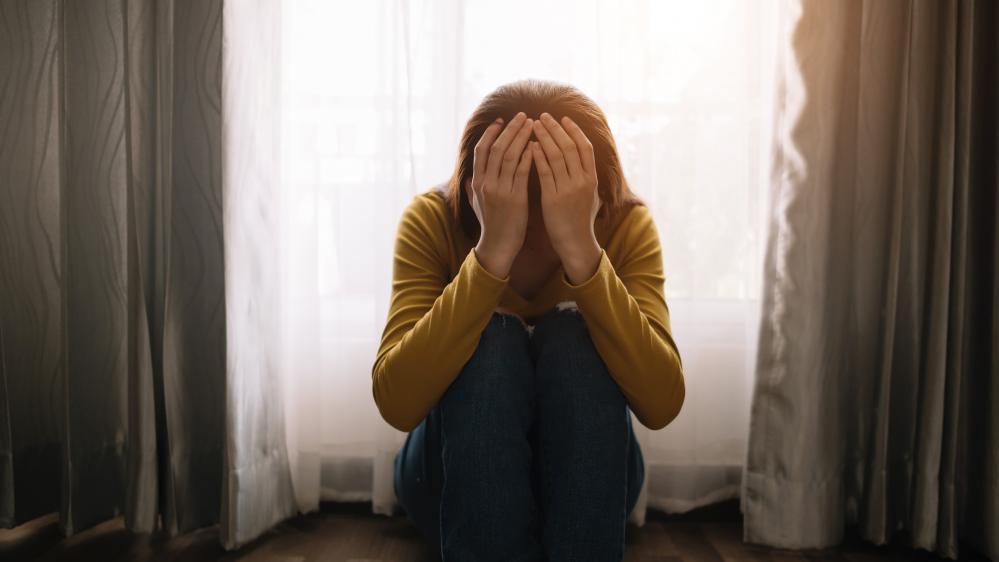Get In Touch
(855) 744-1177

The journey to wellness for those with bipolar psychosis is one marked with many challenges. Bipolar disorder alone is characterized by intense mood swings, but when coupled with psychosis, the individual faces a reality that can be distorted by hallucinations and delusions. It’s a condition that necessitates specialized and compassionate care.
At Empower Residential Wellness, we’ve seen firsthand the transformative power of targeted treatment within our serene facility. Individuals often arrive cloaked in the weight of their symptoms, but through our integrative approach, they begin to rediscover the equilibrium they deserve.
Residential treatment centers for bipolar psychosis California provide a reprieve from the chaos engendered by this condition. They offer safe havens where structure and routine stabilize the unpredictable waves of bipolar psychosis.
What sets these sanctuaries apart is their commitment to evidence-based practices, ensuring that each therapy session, social activity, or medication regimen contributes to the overarching goal of sustained mental health.
Empower Residential Wellness adopts a multi-faceted approach to treatment, recognizing that healing is not unilateral. Medication management is crucial, as it helps in stabilizing moods and managing symptoms, but it’s just one piece of a larger puzzle.
Therapies such as Dialectical Behavior Therapy (DBT) and Cognitive Behavioral Therapy (CBT) are instrumental in providing individuals with the skills to manage their symptoms and the challenges they face daily.
A strong emphasis on holistic care means incorporating activities that foster neuroplasticity, the brain’s ability to adapt and change. This could include artistic expression, physical wellness, and mindfulness practices.
The ethos at Empower is that recovery permeates beyond just the psychological aspects; it’s a comprehensive journey that involves body, mind, and spirit. Our holistic approach means we also prioritize nutritional guidance, physical exercise, and sleep hygiene as integral components of our treatment plans.
With our therapeutic gardens and yoga sessions, we aim to nurture a sense of peace and connection to self, which is often disrupted by bipolar psychosis.
Personalized Care: Our 3:1 staff-to-patient ratio is a testament to our commitment to individualized care. Within our walls, patients are not a statistic; they are unique individuals with distinct stories and specific needs.
Community and Connection: One of the most heartbreaking aspects of bipolar psychosis is the isolation it can create. Our center is structured to encourage community building and connections, creating a network of support that lasts well beyond a patient’s stay.
Family Involvement: Healing extends to the family unit, which is why we engage relatives in the treatment process, offering education and support as they navigate the complexities of bipolar psychosis together.
Choosing the right residential treatment center for bipolar psychosis in California isn’t a decision to take lightly. It’s fundamental to select a facility that resonates with the patient’s personal values and treatment needs.
Personal insights resonate deeply when considering a facility. I recall a patient, let’s call her Anna, who arrived at Empower Residential Wellness engulfed by the turmoil of bipolar psychosis. Throughout her treatment, not only did her symptoms abate, but she also rekindled passions and relationships that had languished in the shadow of her condition. Anna’s story, like many others, is a beacon of hope.
At Bassett House, the adult treatment wing of Empower Residential Wellness, we offer more than just a promise of recovery; we deliver an experience steeped in compassion, innovation, and expertise.
Our nuanced understanding of bipolar psychosis and our unwavering dedication to our patients set us apart. We believe in treating the whole person, not just the diagnosis.
Clients and their families often express their gratitude for the sanctuary we provide, a place where growth, healing, and empowerment are not just envisioned but actively pursued each day.
Transitioning Home: The transition from a treatment center back into everyday life is a pivotal moment. Our aftercare planning includes resources and support systems to ensure a seamless and stable return to daily life.
Ongoing Support: We understand that recovery is an ongoing process. That’s why we provide continued care options, including access to support groups and alumni programs.
Empowerment Through Education: We arm our clients with knowledge – the understanding of their condition, the tools for self-care, and strategies for facing the future with resilience.
Advocacy: Advocacy is close to our hearts. We strive to increase awareness about bipolar psychosis and the efficacy of residential treatment, transforming perceptions one story at a time.

Yes, bipolar disorder is recognized as a disability in California. Under both federal and state laws, including the Americans with Disabilities Act (ADA) and the California Fair Employment and Housing Act (FEHA), individuals with bipolar disorder can qualify for disability protections if their condition substantially limits one or more major life activities. This recognition ensures that they are entitled to reasonable accommodations in the workplace and cannot be discriminated against due to their condition. At Empower Residential Wellness, we understand that living with bipolar disorder can present challenges, but with proper treatment and support, individuals can lead productive lives.
People with bipolar disorder have a variety of living options, depending on the severity of their symptoms and their current needs. Some may live independently, while others might find support in group homes or assisted living facilities. For those requiring more intensive care, particularly during acute episodes of bipolar psychosis, residential treatment centers like Empower Residential Wellness provide not only safe accommodation but also comprehensive treatment programs. We offer a homelike setting where individuals can receive targeted therapies and round-the-clock care, all while being treated with dignity and respect.
Bipolar disorder is considered severe when symptoms are intense enough to significantly impair an individual’s ability to function in daily life. This might manifest through extreme mood swings, prolonged episodes of depression or mania, or the presence of psychotic features such as hallucinations or delusions. At Empower Residential Wellness, we often see individuals who need help beyond outpatient care–they might be experiencing severe disruptions in their relationships, work, or well-being. Our tailored treatment plans are designed to address the unique severity and manifestations of each person’s bipolar disorder, helping them return to a more stable and fulfilling life.
Bipolar disorder can qualify an individual for Social Security Disability Insurance (SSDI) if the condition is severe and well-documented, showing that it prevents maintaining gainful employment. The application process involves providing comprehensive medical records and, often, a detailed treatment history. Here at Empower Residential Wellness, we support our clients by providing the necessary documentation of their condition and treatment to assist with their SSDI applications. It’s a part of our commitment to advocate for our clients’ well-being, both during their stay and as they prepare for the future.
Residential treatment centers like Empower Residential Wellness are dedicated to not just immediate stabilization but also the long-term recovery of our clients. Upon discharge, we provide detailed aftercare plans, which often include outpatient therapy options, support groups, and recommendations for continued medication management. Our approach ensures that the transition from inpatient to daily life is supportive and sustainable. We also encourage alumni engagement to foster a continuous connection to their support system. Ultimately, our goal is to empower each individual with the knowledge and tools they need to manage their condition and maintain stability.
Residential Treatment Centers For Bipolar Psychosis California